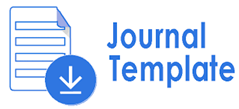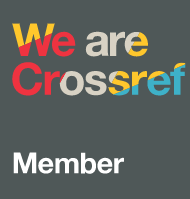Legitimazing of Collaborative Learning as a recommended learning model in society 5.0 era in Indonesia
Abstract
Keywords
Full Text:
PDFReferences
Anggraeni, Y & Nilawijaya, R. (2021). The Impact of Motivation and Collaboration Learning on Academic Achievement. Jurnal Pendidikan Progresif. Volume 11(2), 235-245.
Anggreni, I. D. A. Y. D., Margunayasa, I. G., & Kusmariyatni, N. N. (2019). Pengaruh Model Pembelajaran Kolaboratif Ditinjau Dari Motivasi Berprestasi Terhadap Hasil Belajar IPA. Indonesian Journal of Educational Research and Review, Vol. 2 No. 2, 125-136.
Ardiyati, W. (2018). Realization of Collaborative Learning in Speaking Skill. Proseding SENDI_U2018.
Arjunaita. (2020). Pendidikan di Era Revolusi Industri 5.0. Prosiding Seminar Nasional Pendidikan Program Pascasarjana Universitas PGRI Palembang 10 Januari 2020.
Arta, B. (2018). Multiple Studies: The Influence of Collaborative Learning Approach on Indonesia Secondary School Students’ English-Speaking Skill. English Language Teaching Educational Journal (ELTEJ), Volume 1(3), 149-160.
Ayyub, B., Akib, E & Amin, B. (2021). Promoting the Students Speaking Skill by Implementing Collaborative Learning Method in Teaching Speaking Skill. Journal of Language Teaching and Learning, Linguistics and Literature. Volume 9(1), 531-545.
Barkley, Elizabet E, K., Patricia Cross., & Clarie Howell Major. (2016). Collaborative learning Techniques. Bandung: Nusa Media
Bettany-Saltikov, J & McSherry, R. (2012). How to do a Systematic Literature Review in Nursing-A Step-by-Step Guide. McGrawHill Education: UK, 2012.
Chandra, R. (2017). Collaborative Learning for Educational Achievement. Journal of Research and Method in Education (IOSR-JRME). Volume 5(2), 1-5.
Chiu, M. M. (2000). Group Problem Solving Processes: Social Interactions and Individual Actions. Journal for the Theory of Social Behavior, Volume 30(1), 27-50.
Daud, W., Hanafi, H & Laepe, A. (2018). The Impact of Collaborative Learning on Students’ Writing Ability and Their Motivation in Writing. Journal of Language Education and Educational Technology. Volume 1(3), 1-14.
Derakhshan, A. (2015). The Challenges of Teaching English Language: The Relationship Between Research and Teaching. International Journal of Linguistics Vol. 7(1), 102-110.
Dewi, M. R., Mudakir, I & Mardiyah, S. (2016). The Effect of Collaborative Learning Model with Lesson Study on Student Critical Thinking. Jurnal Edukasi UNAJ. Volume 3(2), 29-33.
Dillenbourg, P. (1999). Collaborative Learning: Cognitive and Computational Approaches. Advances in Learning and Instruction Series. (New York, NY: Elsevier Science, Inc, 1999).
Diwan, P. (2017). Is Education 4.0 An Imperative For Success of 4th Industrial Revolution? Accessed from https://medium.com/@pdiwan/is-education-4-0-an-imperative-for-success-of-4th-industrial-revolution-50c31451e8a4
Evans, M. (2018). Improving Engagement of High School Students in United States History Through Collaborative Learning. School of Education Student Capstone Project. 173.
Felix-Aguelo, R. (2017). Enhancing Students’ Language Competencies Through Collaborative Learning. Online Proceeding of the International Conference: DRAL 3/19th ESEA 2017.
Fisk, P. (2017). Education 4.0 The Future of Learning Will Be Dramatically Different, in School and Throughout Life. Retrieved from http://www.thegeniusworks.com/2017/01/future-education-young-everyone-taught-together
Fukuyama, M. (2021). Society 5.0: Aiming for a New Human-Centered Society. Japan Spotlight. July/August 2018, 47-50.
Gokhale, A.A. (1995). Collaborative Learning Enhances Critical Thinking (Versi Elektronik). Journal of Technology Education, 7 (1), 22-30.
Handayani, N. N. L & Muliastrini, N. K. E. (2021). Membangun Scientific Literacy Menuju Era Society 5.0. Jurnal of Science and Religion Discourse, 34-44.
Handayani, N. N. L., Muliastrini, N. K. E., Gotama, P. B. A. P., & Karnitawati, N. M. (2021). Pembelajaran Era Disrupsi Menuju Era Society 5.0 (Telaah Perspektif Pendidikan Dasar). Journal Lampuhyang. Volume 12 Nomor 1 Januari 2021, 79-91.
Harayama, Y. (2017). Society 5.0: Aiming for a New Human-Centered Society”, Hitachi Review, Vol. 66, no. 6, 2017, pp. 556-557.
Hussin, A. A. (2018). Education 4.0 Made Simple: Idea For Teaching. International Journal of Education & Literacy Studies, Volume 6(3), 92-98.
Hwangji & Robert Smiles. (2022). The Role of Collaboration Learning in the Online Education. International Journal of Economics, Business and Management Research. Volume 6(6), 97-106.
DOI: https://doi.org/10.33373/chypend.v9i1.4893
Refbacks
- There are currently no refbacks.

This work is licensed under a Creative Commons Attribution-NonCommercial-ShareAlike 4.0 International License.
Copyright (c) 2018 Universitas Riau Kepulauan

Ciptaan disebarluaskan di bawah Lisensi Creative Commons Atribusi 4.0 Internasional.















